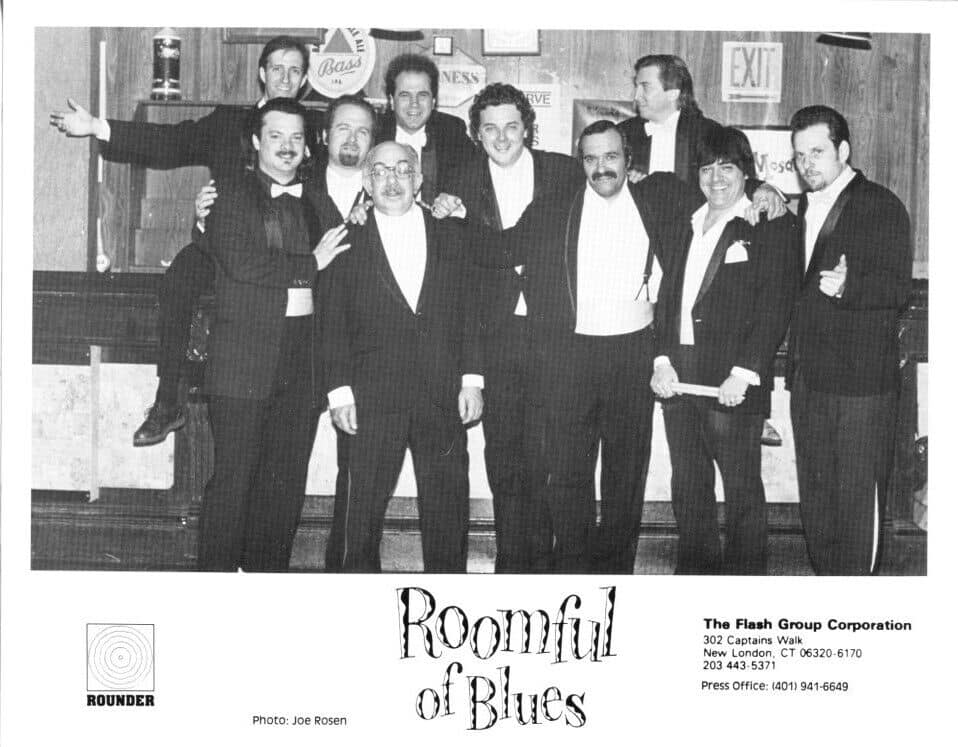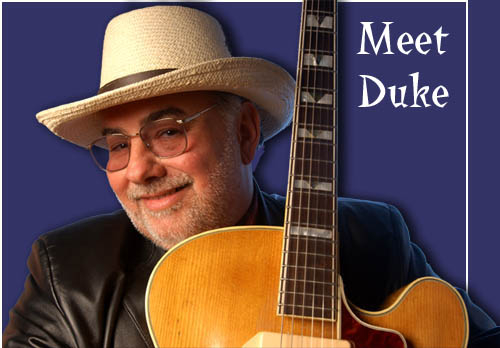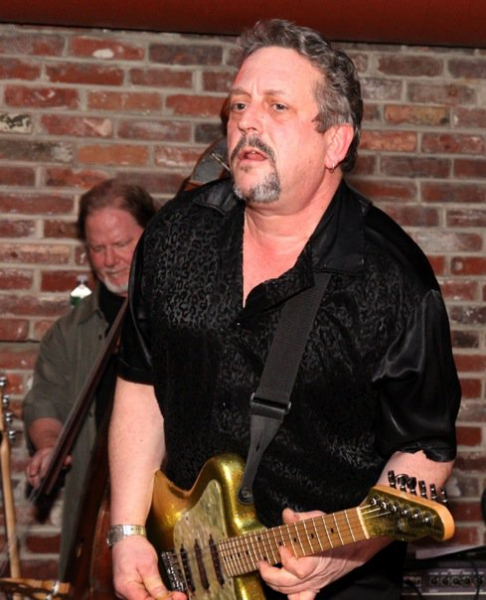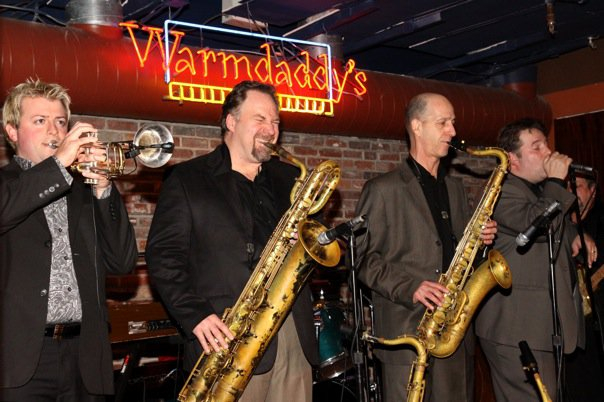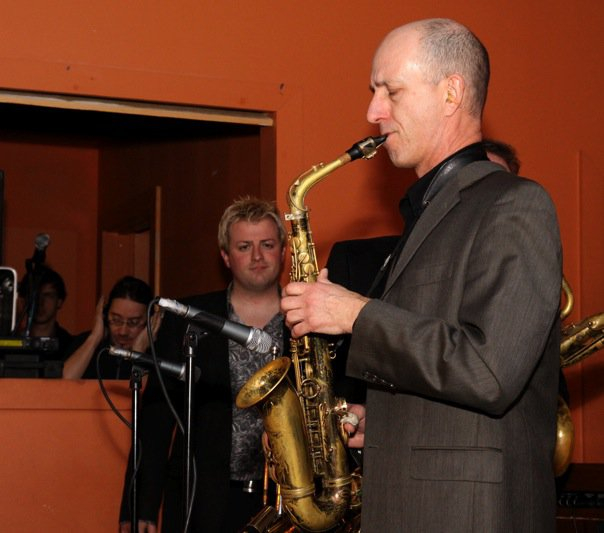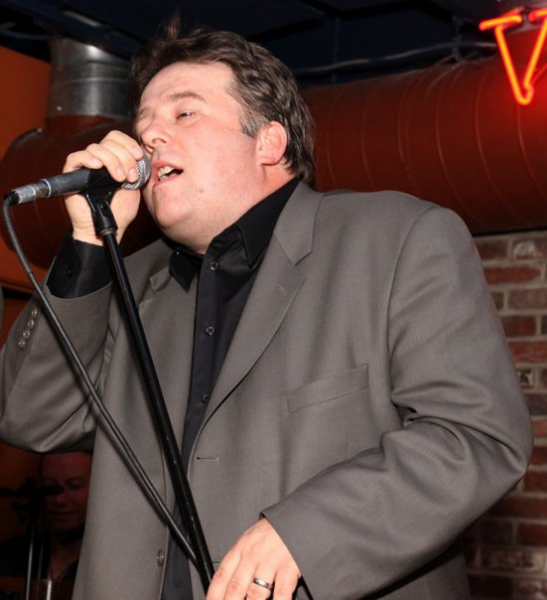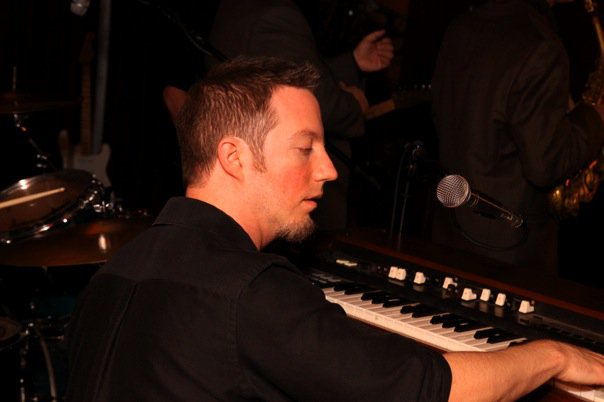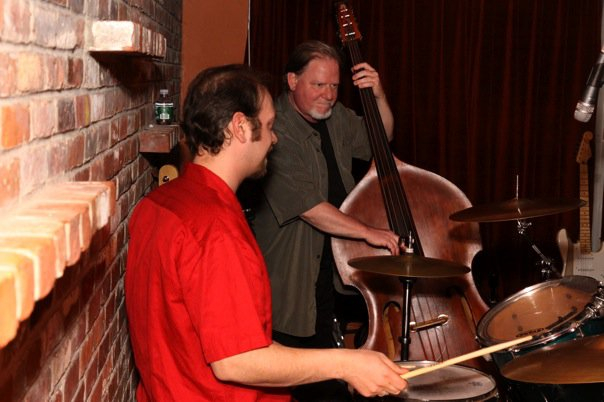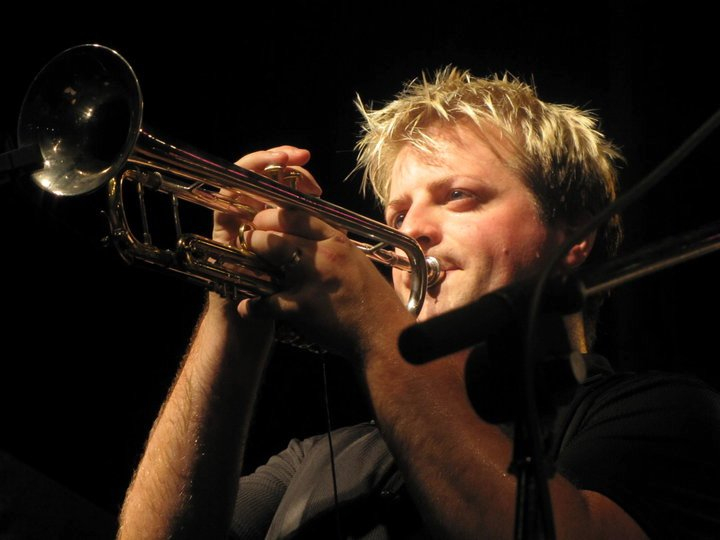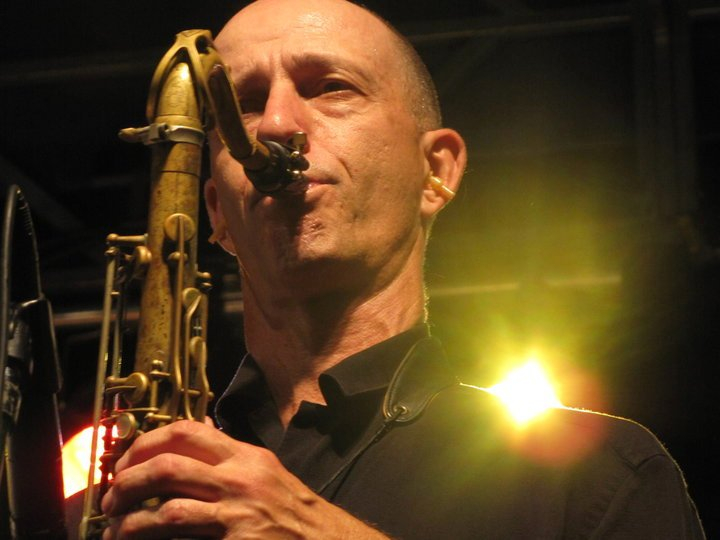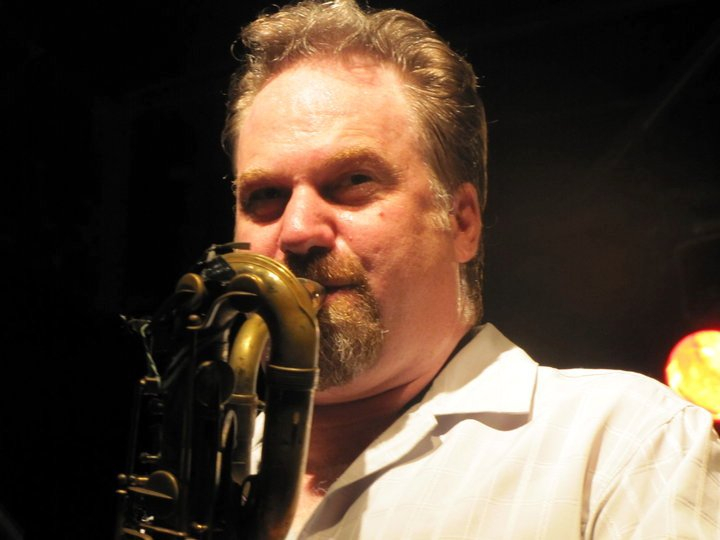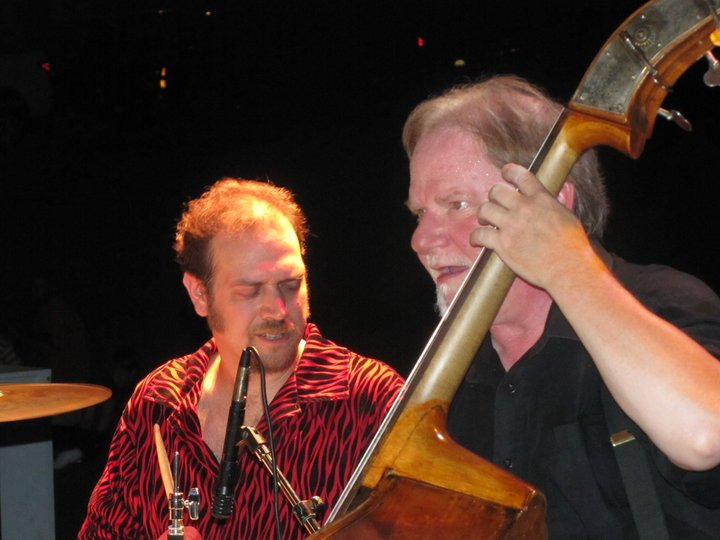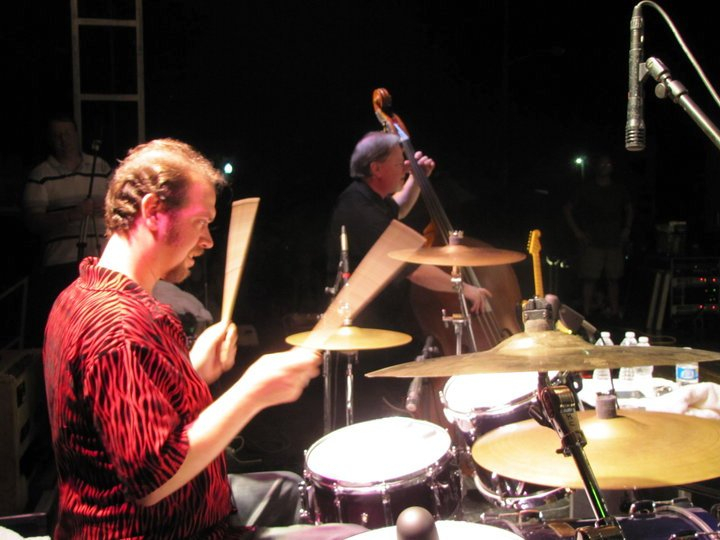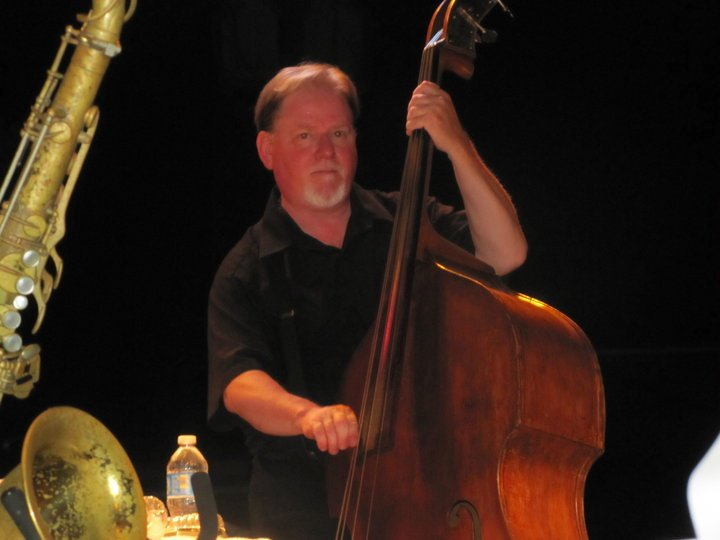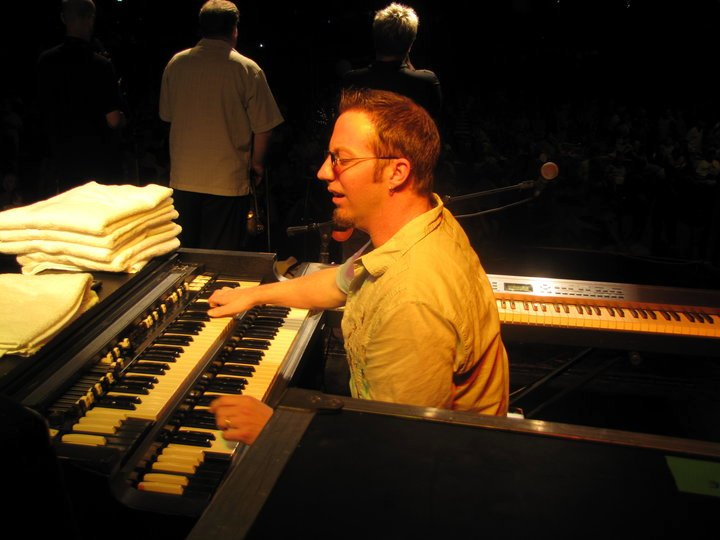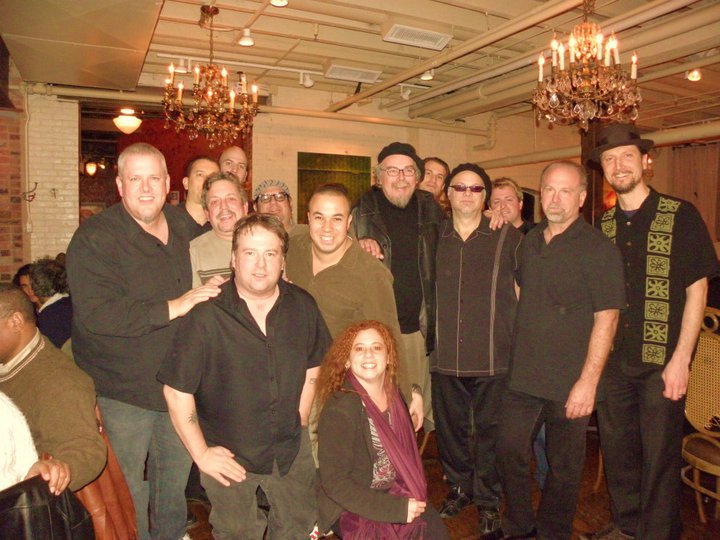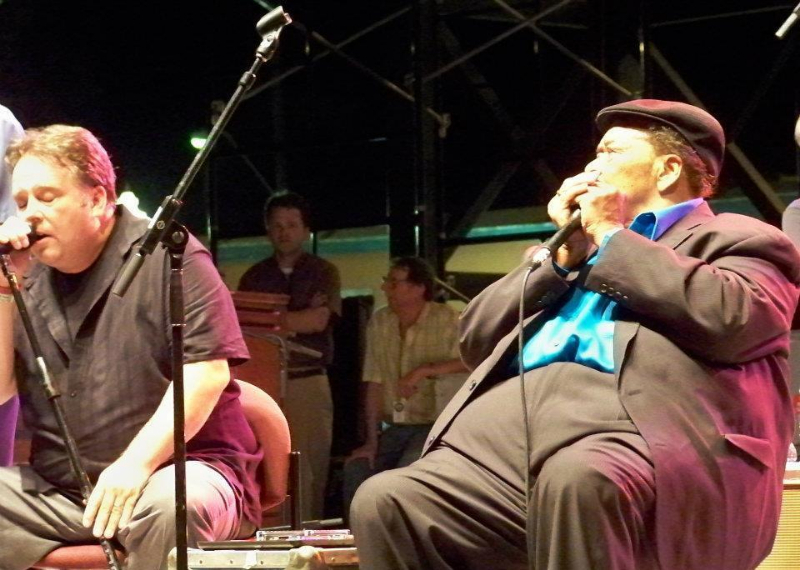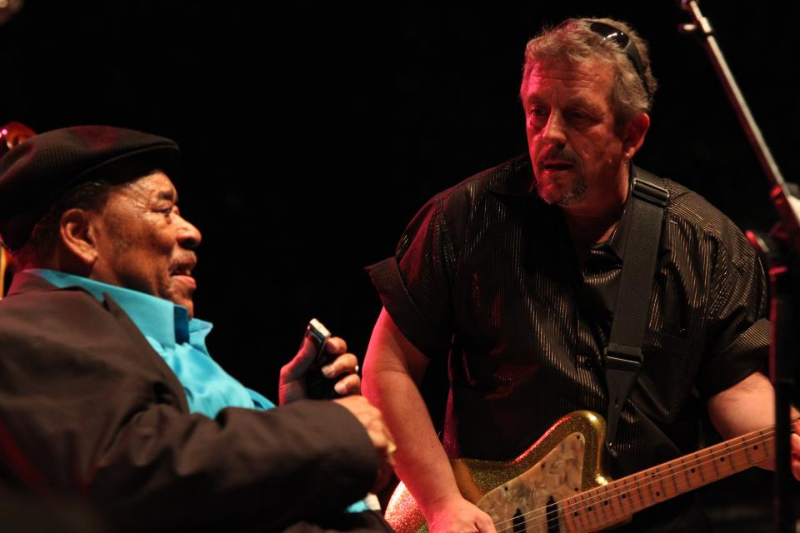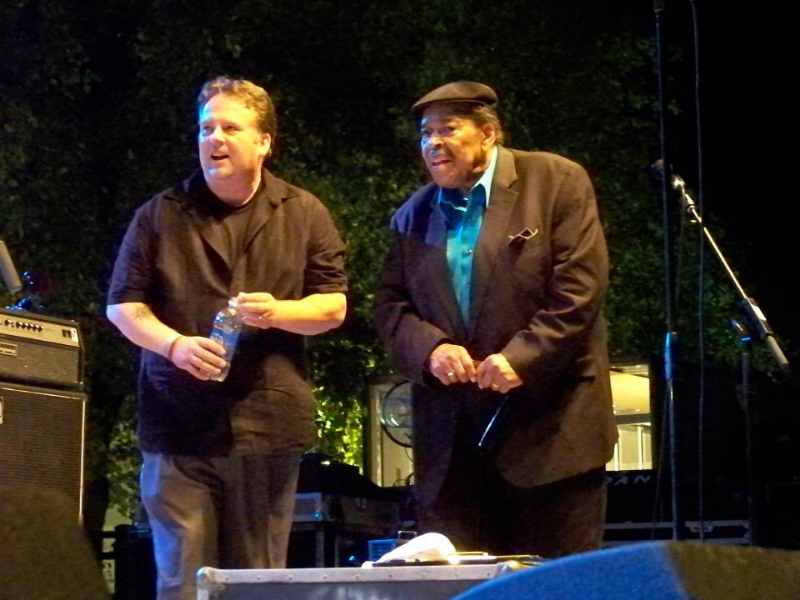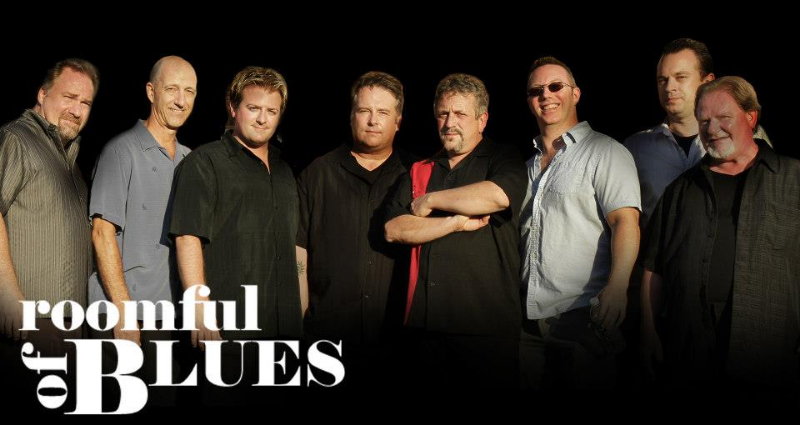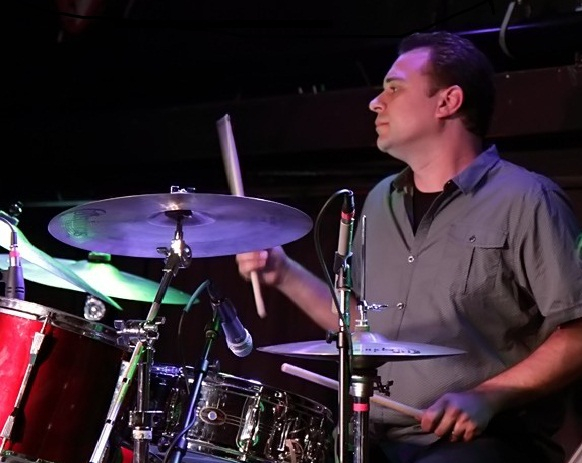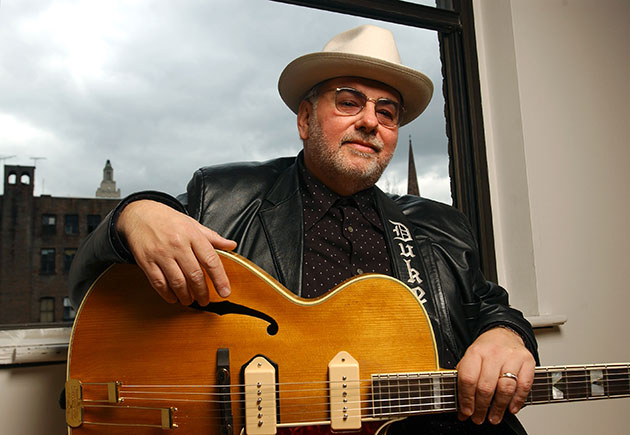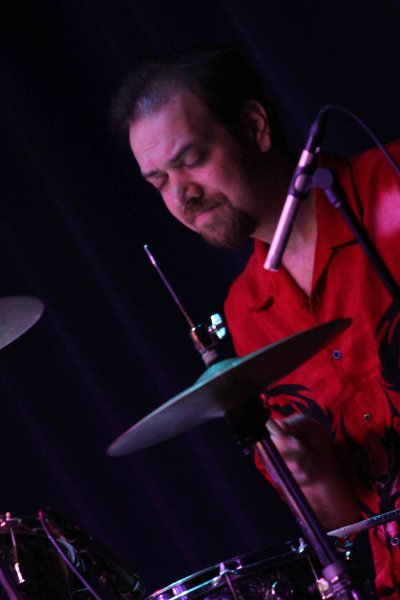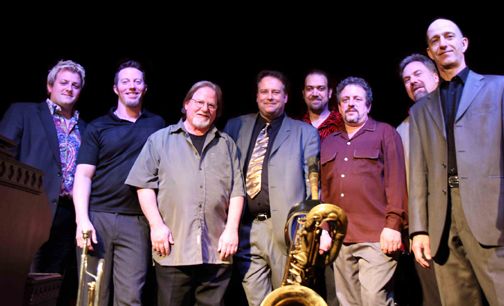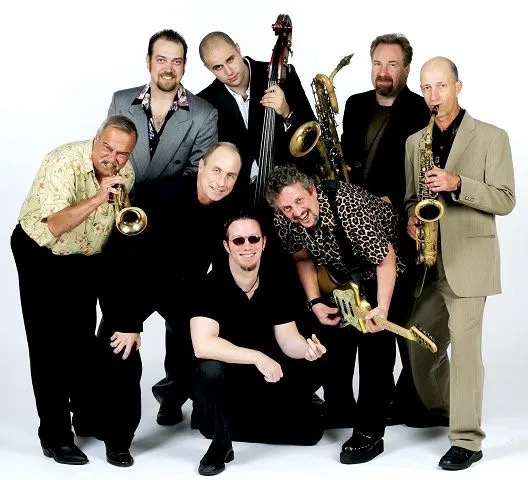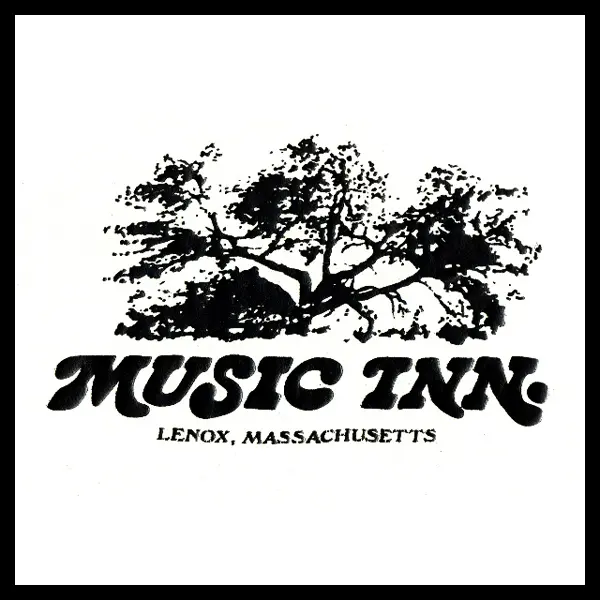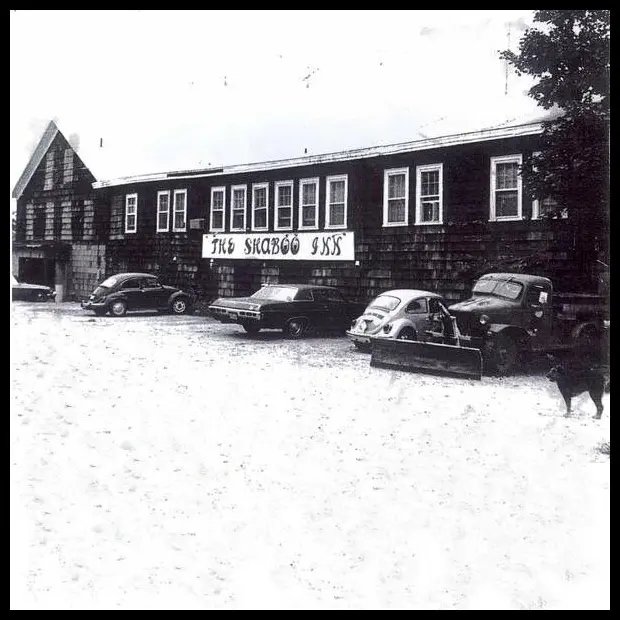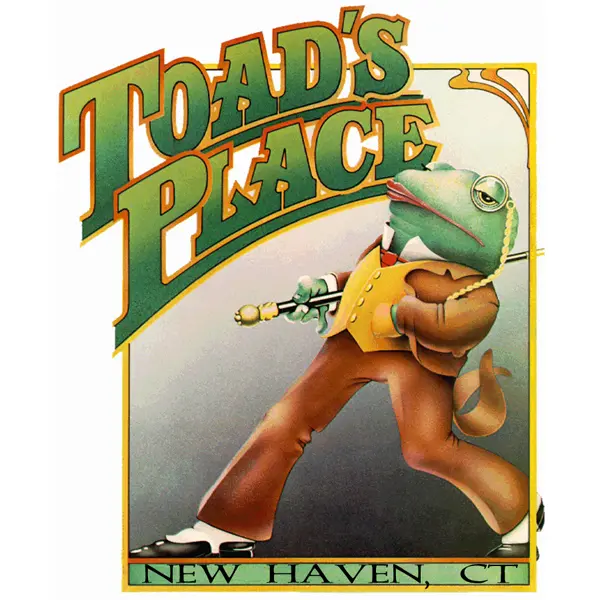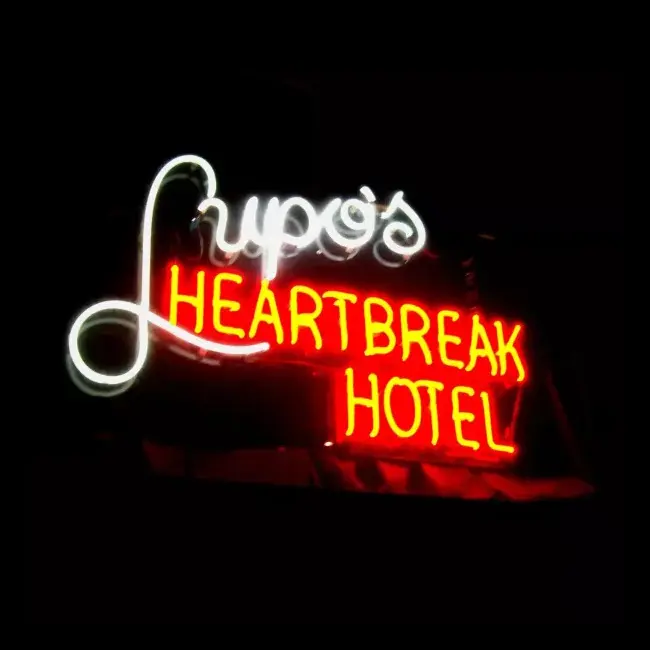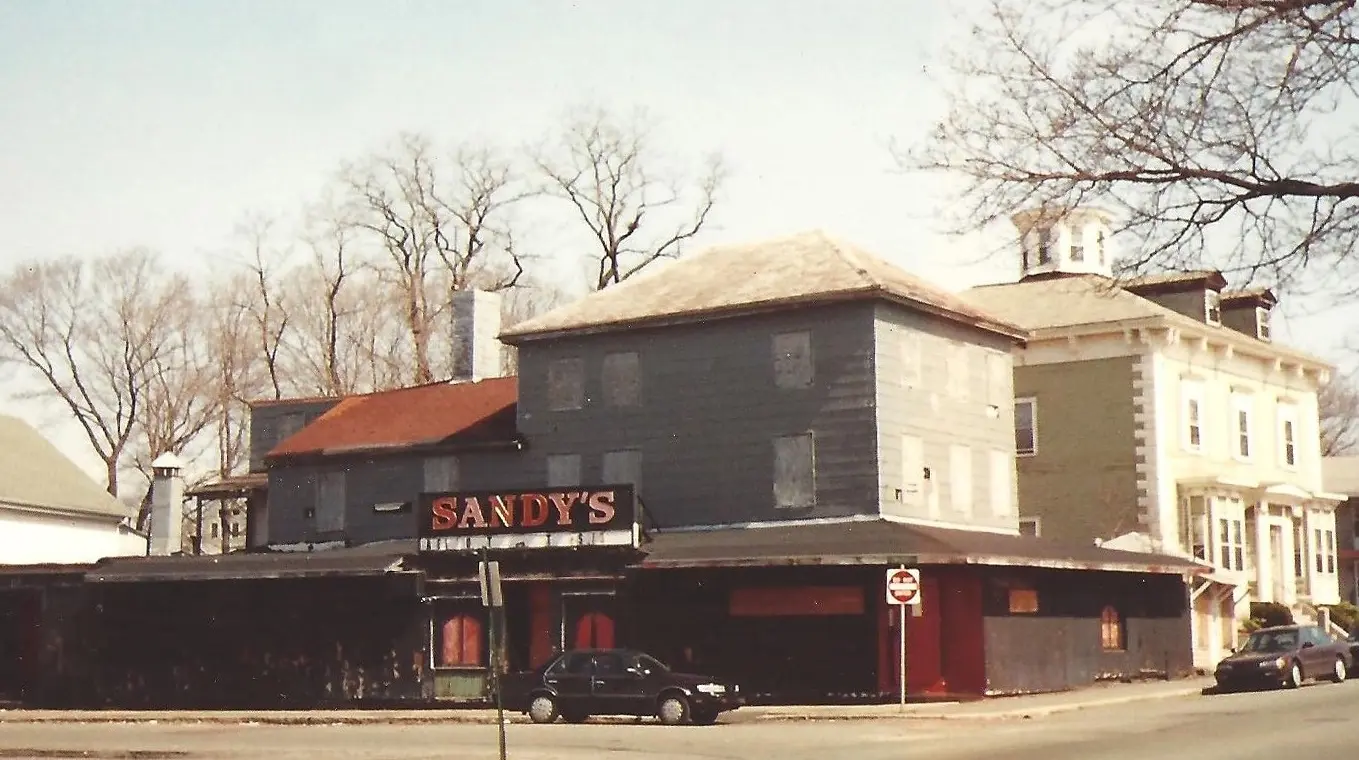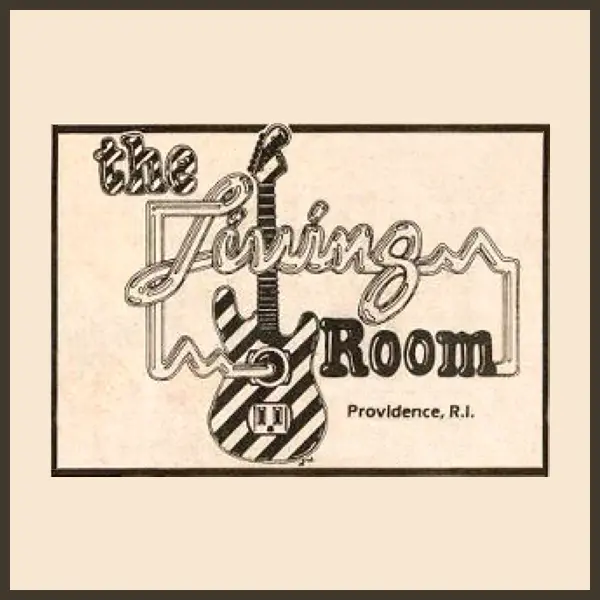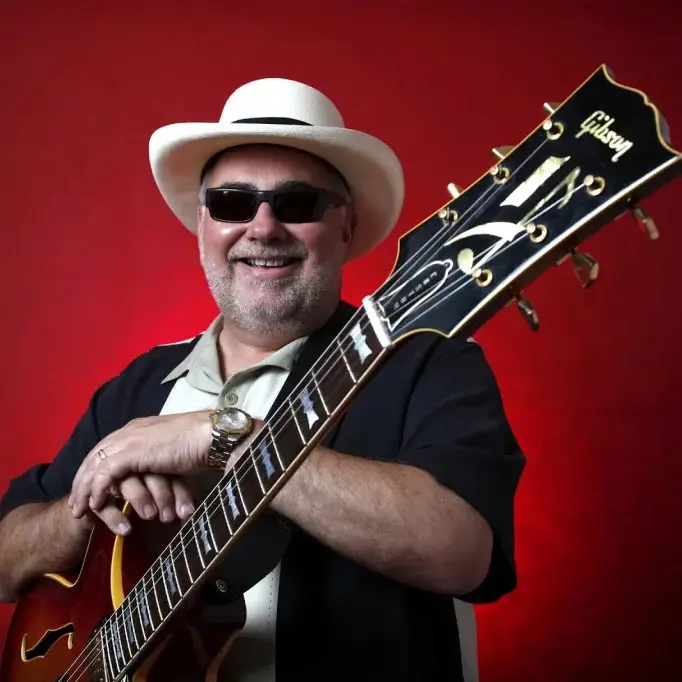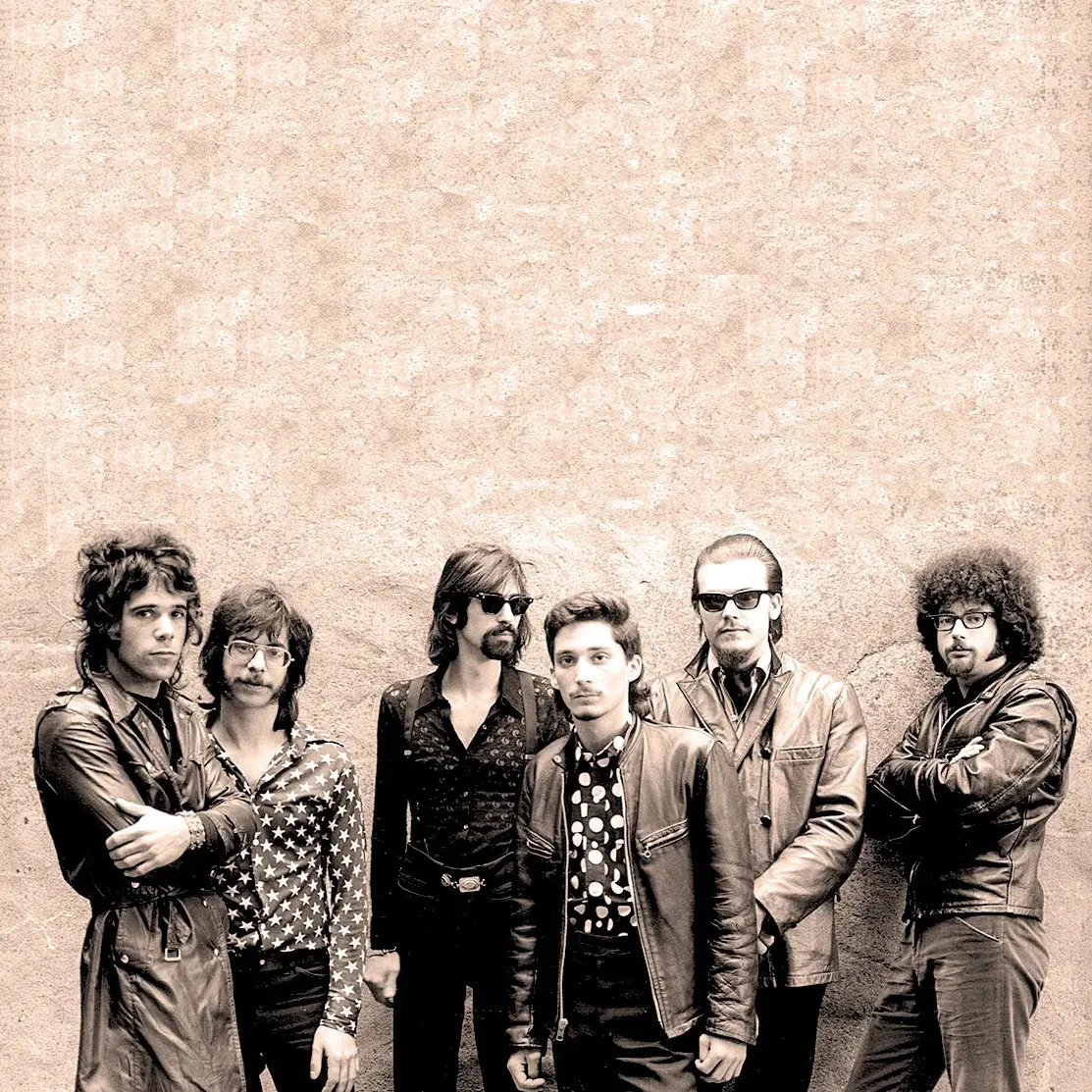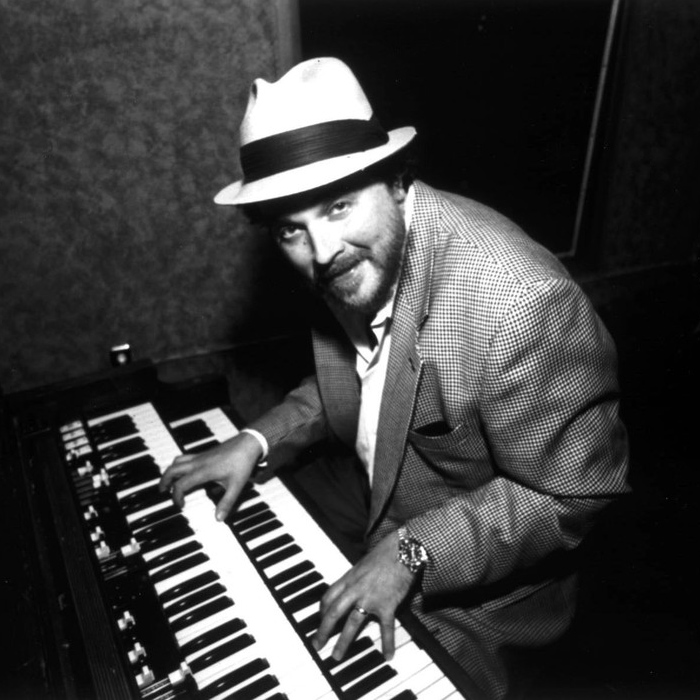Roomful of Blues
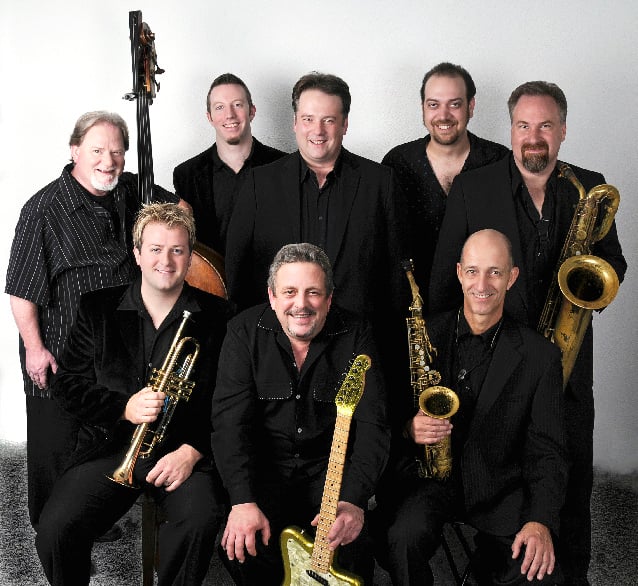
When Duke Robillard and Al Copley formed the keester-kickin’ ensemble known as Roomful of Blues 56 years ago, they could just as accurately have named the group Fistful of Blues, Faceful of Blues or Fuel Tank Full of Blues. Why? Because throughout the decades the band has provided explosive, blues-based smackdowns that leave audiences punch-drunk exhausted and soaked in sweat – but screaming for more.
Though the group began as a standard blues-rock outfit, these days their name is a bit misleading because over the years the uniquely genre-hopping assortment of ace players has navigated the deepest depths of modern swing and the mightiest rivers of jump blues, boogie-woogie and soul. But the band has never abandoned its Chicago-blues moorings, so “Roomful of Blues” remains accurate, especially as its regularly rotating roster – which has included over 50 members – has performed in literally thousands of rooms, from small to large to super-sized. At this point, the only name tweak that would make perfect sense would be “Roomfuls of Blues.”
A horn-driven melodic monster that The Chicago Sun-Times once described as “swagger, sway and swing with energy and precision,” RoB has established a consistent, enduring sound all its own despite multiple lineup changes. A number of its former members have had enormous success since leaving the group, among them Robillard and Copley, guitarist Ronnie Earl, harmonicists Sugar Ray Norcia and Curtis Salgado, organist Ron Levy, saxophonist Greg Piccolo, bassist Preston Hubbard, singer Lou Ann Barton and drummer Fran Christina. As of 2022, the band has recorded 20 studio LPs, three live albums and received five Grammy nominations. They were inducted into the Rhode Island Music Hall of Fame in 2012.
Formation, Early Appearances
RoB came together in Westerly, Rhode Island, in 1967 as a standard blues-rock four piece: guitarist/vocalist Robillard, a Woonsocket native, pianist Copley, bassist Larry Peduzzi and drummer Fran Cristina. After playing the local club/coffeehouse circuit for several years, Robillard’s passion for jump blues led to the addition of saxophonists Greg Piccolo (tenor) and Rich Lataille (alto/tenor) in 1970 and swing-savvy drummer John Rossi replacing Cristina. In 1971, Doug James joined on baritone sax and the seven-piece group spent the next two years honing their sound while playing across New England both headlining and as the opener for well-established blues acts; they also continued what became a 15-year residency at the Knickerbocker Cafe in Westerly that started in ’67.
By 1973, RoB was one of the most sought-after bands on the New England blues circuit and in October that year they followed a three-night stand at The Shaboo Inn with a five-nighter at Max’s Kansas City in New York. In 1974, they opened for Count Basie, who called them “the hottest blues band I’ve ever heard.”
Island Signing, Debut Album, Let’s Have a Party, Lineup Changes
After non-stop touring around New England between 1974 and 1976 that included gigs at Music Inn and Toad’s Place, with the help of singer-songwriter Doc Pomus they landed a deal with Island Records and recorded their eponymous debut LP in 1977. Boston-based critic Joe Viglione wrote that the group played the blues “with the precision of jazz greats” and that the album resembled The J. Geils Band’s 1970 debut on Atlantic, “not in sound, but in look and attitude.”
In 1979, after months of touring in 1978 that included a three-night stand at The Bottom Line in New York, RoB recorded their sophomore effort, Let’s Have a Party, on the Antilles label, the jazz-focused division of Island. In 1980, the year the band debuted at Lupo’s Heartbreak Hotel, Robillard left to become the bandleader of rockabilly icon Robert Gordon’s group, replaced by Boston University graduate Ronnie Earl, who’d played in the house band at The Speakeasy, a Cambridge blues club. Vocalist Lou Ann Barton also joined that year, followed in 1981 by trombonist Porky Cohen of Providence and trumpeter Bob Enos of Boston, turning the band into a ten-piece acoustical fireball.
1980s Albums, First Grammy Nominations
In 1981, RoB recorded their third album, Hot Little Mama, issued on the band’s own Blue Flame label, and supported it with a tour that included a gig at the storied Sandy’s Jazz Revival in Beverly, Massachusetts, in 1982. With their nationwide reputation as a walloping blues force now firmly in place, their next two projects were as the studio band for two then-living legends: alto saxophonist and blues shouter Eddie “Cleanhead” Vinson (Eddie Vinson & Roomful of Blues, 1982) and Rock & Roll Hall of Famer Big Joe Turner (Blues Train, 1983). Both LPs were nominated for Grammys.
In 1984, after signing with Varrick Records, the band recorded Dressed Up to Get Messed Up before backing yet another blues great, singer-songwriter-guitarist Earl King, on his 1986 album Glazed, also nominated for a Grammy. In 1987, RoB’s expanding touring schedule took them to Europe for the first time and included an appearance at the Montreux Jazz Festival before they debuted at The Living Room in Providence and recorded what many consider to be one of their finest LPs, Live at Lupo’s Heartbreak Hotel.
Major Lineup Changes, Pat Benetar Collaboration
By the end of the 1980s, the band’s lineup had changed significantly again, most notably with Brookline, Massachusetts, native Ron Levy replacing founding member Copley and Ronnie Earl leaving to pursue a solo career. Personnel shifts continued through the 1990s, with guitarist Chris Vachon joining RoB in 1990 – just before the group backed Pat Benatar on her True Love album – and pianist Matt McCabe and harmonicist Sugar Ray Norcia also coming on board.
1990s/2000s Albums, Grammy Nominations
In 1994, RoB returned to the studio to record the first album of their own in seven years, Dance All Night, followed by Turn It On! Turn It Up! (1995, nominated for a Grammy), Under One Roof (1997) and There Goes the Neighborhood (1998), the last recorded as a nine-piece including the core of Vachon (bandleader since 1997), Enos, Lataille, Rossi and newly added vocalist McKinley “Mac” Odum. All were released on the Bullseye Blues label, a Rounder Records subsidiary co-founded by Ron Levy.
In the 2000s, RoB has recorded eight albums: Watch You When You Go (2001, Rounder Select), Live at Wolf Trap (2002, Roomtone Records) and six others on the Chicago-based Alligator label. Five of the six were nominated for Grammy Awards – That’s Right! (2003), Standing Room Only (2005), Raisin’ A Ruckus (2008), Hook, Line and Sinker (2011) and 45 Live! (2013, recorded at The Ocean Mist in Matunuck, Rhode Island) – and the other, In A Roomful of Blues (2020), is a 13-track LP featuring ten originals, more than on any previous RoB album. In 2014, Rockbeat Records issued With Roomful of Blues, a 17-track collection recorded in 1983 featuring Eddie “Cleanhead” Vinson, Big Joe Turner and boogie-woogie piano badass Dr. John.
Festival Regulars, Popular Opening Act
In addition to playing at innumerable festivals across North America and Europe, RoB has opened for a number of blues giants such as B.B. King, Otis Rush and Stevie Ray Vaughan and rock icons including Eric Clapton and Carlos Santana. In recent years, they’ve appeared multiple times at The Bull Run in Shirley, Massachusetts, and in October 2022 they performed at the Rhode Island Music Legends Concert alongside fellow Rhode Island Music Hall of Fame members John Cafferty and The Beaver Brown Band and Neal and the Vipers.
Vachon’s Comments On Sound, Repertoire
Asked in 2017 what distinguishes RoB from the plethora of other horn-soaked jump-blues and swing bands, Vachon said he thinks it’s the group’s longevity and eclectic, distinctively danceable repertoire. “We’ve been doing this for a long time and there’s a unique sound that we’ve developed,” he said. “Because we have the horns, we like to cover all the different territories, like New Orleans, Kansas City and Chicago, and all the different musical styles. We also like people to dance.”
“When people think of a blues band, they think, ‘Oh, it’s depressing music!’” he added. “But we’re kind of the opposite of that. We’re very danceable and we do a lot of different stuff so we don’t stick with one thing all night long.”
(by D.S. Monahan)

